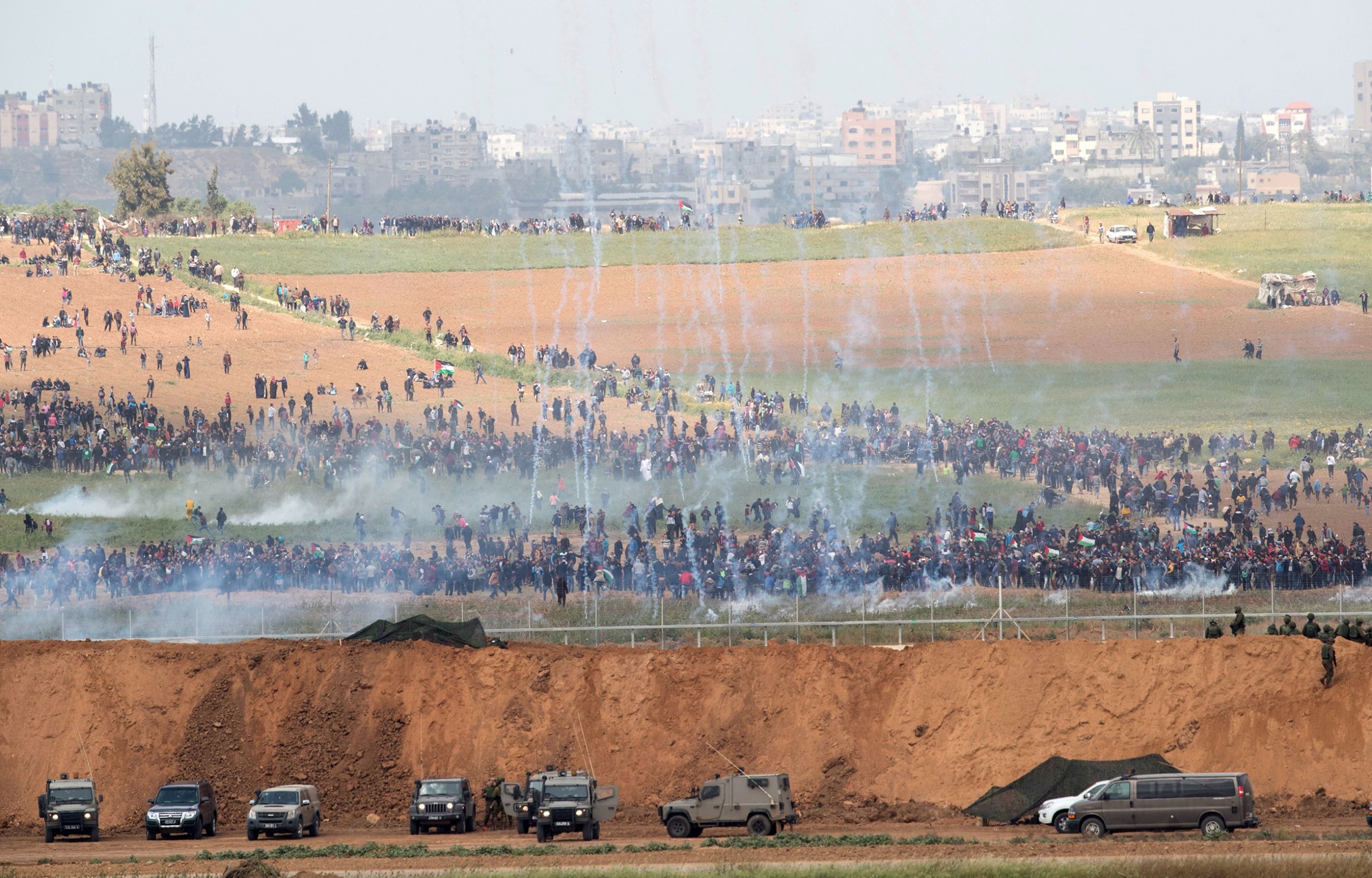
Violence broke out on March 30 when an estimated 30,000 Palestinians gathered at the border between Israel and Gaza for an event that was billed as the first day of a six-week protest against the longstanding blockade there as well as in favor of a right to return home for Palestinians who lost land in 1948 in what is now Israel.
After more than a dozen Palestinians were killed by Israeli fire, both sides defended their actions–and acknowledged that clashes were likely to continue in the run-up to the 70th anniversary of Israel’s founding in May.
A deadly day
While the idea for border protests was started by a social-media activist months ago, Hamas–the Islamist group that controls Gaza–adopted it and organized the first day of the marches. When Palestinian demonstrators began throwing rocks, tossing Molotov cocktails and rolling burning tires toward the border fence, Israeli troops responded with tear gas, rubber bullets and live fire. Palestinian officials said 18 protesters were killed in the clash and hundreds injured, making the protest the deadliest day of the ongoing conflict since the Israel-Gaza war in 2014.
Opposing views
In the days after the violence, each side waged a public relations battle, releasing videos and statements to back up its version of the events. Palestinians and some human-rights groups accused the Israeli military of using excessive force. Israel said its troops killed only protesters who were participating in violence and took necessary steps to prevent Hamas from breaching the border. The U.N. Secretary-General and the E.U. diplomatic chief called for an independent investigation, but Israel’s Defense Minister rejected the idea.
What happens next
Israel has said it will not soften its response to Hamas-led demonstrations and warned that it may target militant groups within Gaza if more violence occurs. The protests are expected to continue until May 15, the date on which Israel was created in 1948–which Palestinians call their nakba, or catastrophe. Hamas has hinted that the protest, known as the March of Return, could culminate in Palestinians’ attempting to cross the border.
More Must-Reads from TIME
- Why Trump’s Message Worked on Latino Men
- What Trump’s Win Could Mean for Housing
- The 100 Must-Read Books of 2024
- Sleep Doctors Share the 1 Tip That’s Changed Their Lives
- Column: Let’s Bring Back Romance
- What It’s Like to Have Long COVID As a Kid
- FX’s Say Nothing Is the Must-Watch Political Thriller of 2024
- Merle Bombardieri Is Helping People Make the Baby Decision
Write to Abigail Abrams at abigail.abrams@time.com